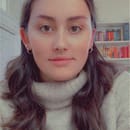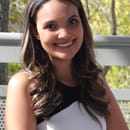Growing up with a learning disability is not easy. There is no question about it. However, it is not always caused by the disability itself but more specifically the perceptions of others. Personally, the stereotypes surrounding dyslexia were much more annoying to deal with than my actual learning disability. For this reason, I am here to address the most common stereotypes linked to dyslexia.
The most common stereotype is the idea of confusing certain letters and numbers. I have never had that issue. Dyslexia is not simply mixing up letters and numbers. To be honest, out of all my friends who are dyslexic, I only met one person who actually had that issue. For the most part, it’s more of a visual illusion. In other words, when I am reading, I have to read word for word, I can’t read a sentence in one flow like most people do. Sometimes I see black lines instead of words, except for the word I am reading. I also see random words pop up on the paper if I am tired. Those are the real causes of dyslexia. This then leads to comprehension problems and other issues like short-term memory or concentration. Mixing up letters and numbers can also happen, but it’s definitely not the main aspect of dyslexia.

Dyslexia is actually a very visual learning disability. In other words, dyslexia creates visual illusions which make it hard to read, write, or comprehension. For example, when I’m reading I start seeing black lines besides the word I’m reading, or random words start popping up. This is a very interesting and underestimated part of dyslexia that I believe we should talk more about. Even though it is not considered as a visual disability, visual illusions are actually pretty common within dyslexics.
One last stereotype that I have heard over the years is that everyone who has dyslexia is the same. This is so far from the truth. I have a good amount of friends who are dyslexics and we all have different strengths and weaknesses regarding our dyslexia, which I think is really interesting. For example, I love to write. I would love to make it into a career. But some of my friends hate writing because it is so demanding for them. For some, dyslexia is the reason why they are incredible in subjects such as math or science. To be honest, I think being dyslexic is so fun.
I hope this will clear things up with not only dyslexia but also all learning disabilities since all these stereotypes can translate to many of them. I consider being dyslexic one of my best qualities. I see certain things in ways that many people can’t. Because of my learning disability, I’ve become very organized, creative and opened minded. I’ve always said that it was my super power when working with kids. Contrary to popular belief, it’s something that I am very proud of.




